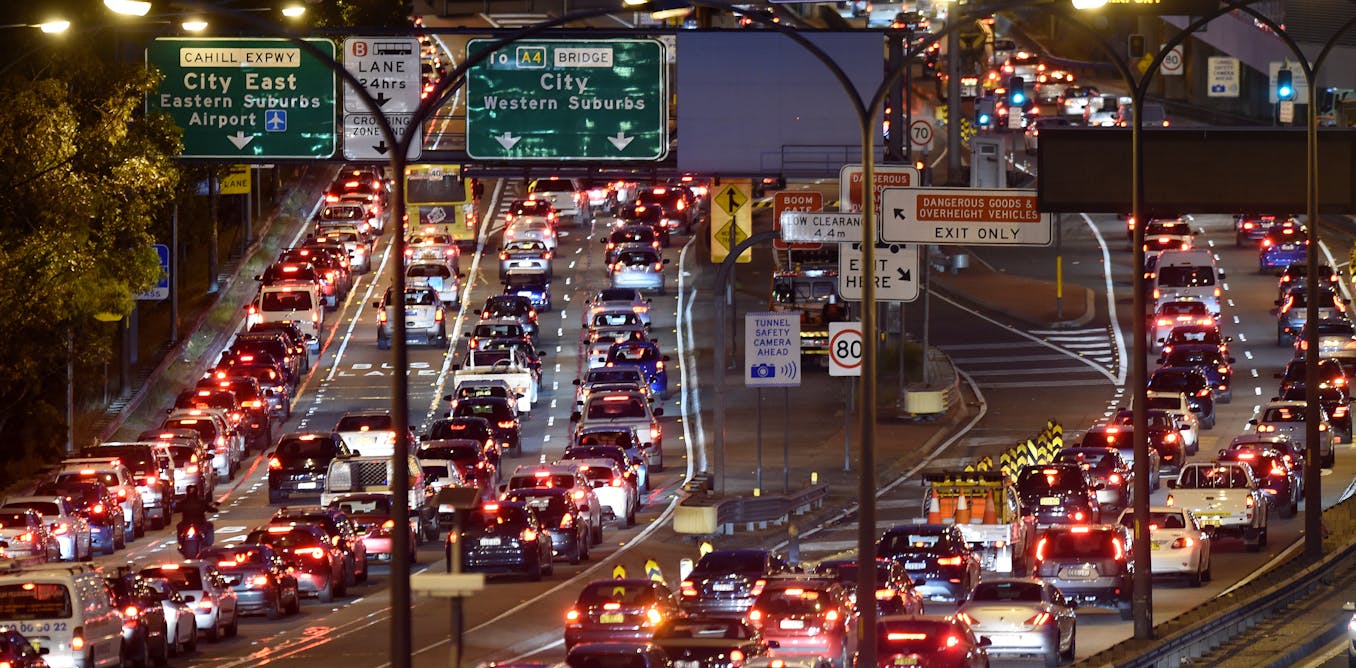If it were possible to afford an apartment that could house a multi-generational family (2 kids, 2 parents, 2 grandparents) within Melbourne’s tram zone - we would get the fuck out of suburbia at the drop of a hat.
My wife and I absolutely despise our ~60 minute commutes each way, and we’d gladly trade our shitty little backyard for walking distance to one of the beautiful botanical gardens.
The problem still largely ties back to the Howard-era changes to capital gains and negative gearing causing a prolonged and painful housing bubble, further exacerbated by 30 years of record immigration.
For real. We don’t build nearly enough higher-density housing in general, and that problem gets exacerbated exponentially if you want to live with a family larger than a childless couple, because we just don’t build much of that.
Tell me about it; feels like any/all higher-density housing built since 2000 largely caps out at 2 bedrooms.
It only gets worse when you factor in we also heavily prefer a single story residence, eliminating >90% of what’s left as it heavily skews towards ‘luxury’ 2-4 storey townhouses over apartments.
It’s notable that the article focuses heavily on the eco impact. However, that’s only half of the story. The other half is how enjoyable cities can be when public transport complements cars and bicycles. Being on the street becomes actually nice. Your kids can bike to school themselves and not die on the first intersection. That sort of stuff. It’s absolutely amazing to live in countries/cities that mastered this
This isn’t a planning problem it’s a people problem.
People want to wake up in a moderately priced home, get into their comfortable car, drive in it on a freeway for 20 minutes or so to get to their moderately well paid job.
Also, many Australian’s are openly hostile to anyone who does not behave in this way, particularly people who favor any other mode of transport like bikes or buses.
It’s both. People will do whatever is most convenient. If our cities are built to be convenient for cars, people will use cars. And this has the effect of people seeing cars are more convenient than other options and being unable to imagine another way, so they are hostile towards ideas which would improve the city planning.
People in the Amsterdam or Tokyo are not more virtuous than Australians for choosing to ride or take public transport. They do it because their cities are just designed around these things being the easy option.
Are you really talking about cloistered small mindedness though ?
I’ve never visited Amsterdam or Tokyo but I can imagine, without any difficulty, that planning could make cities more navigable without cars.
I’m not really sure how to answer your question because I don’t know what you mean. To me the reason for it doesn’t really matter too much. People are opposed to improvements to our city planning and transportation networks. Call it “small mindedness”, call it “having been lied to their whole lives”, call it “wanting things to stay similar to what they already know”, call it what you like, the fact is that they will lobby against improvements like increased density, better bike paths, and reductions in the convenience of cars.
The fact is that neither Amsterdam nor Tokyo got how they are by sheer accident. Amsterdam’s case is perhaps more well-known, because they were going down exactly the same route as us in the '60s, until there was a concerted effort to reverse that (a campaign known as “Stop de Kindermoord” or “Stop the Child Murder”), and now it’s one of the best cities in the world to get around in.
Tokyo still needs some cars. Neither trains nor busses run 24/7. For deliveries and accessibility reasons, some people can’t use the trains (at least not all of them nor all stations). In this heat we’re having trouble with people, particularly the elderly, collapsing in the streets both rural and urban (my wife found an old guy collapsed last week and had to call emergency services :/)
Some of those problems could be solved (more accessible stations and carriages, more accessible busses, etc.) but there are other problems. Bus driver shortages, the number of trains running on a line already at capacity (maintenance and cargo trains run on the same tracks as commuter tracks at night when the commuter trains don’t run), and the costs associated with trying to squeeze any more out. Building new lines and stations in the world’s largest metro is also eye-wateringly expensive and difficult (see the depth of the Oedo line).
People like to conflate two problems together.
Lots of Australia is small and far away from metropolis.
Lots of metropolis could happily exist with wonderful multi modal transport options like trains bus bike and walking.
Between the two, cars grant autonomy outside public planning for individuals to still be individuals to get between families and economy between remote to remote and metro to remote even when there’s no feasible public transport.
The devil in the detail is the problem at it always is anything when you look into it.
Yes there’s big opportunity to improve mass transit. Yes there’s a place for long range individual and small scale transit. Yes there’s a place for last mile delivery.
But the average Joe doesn’t really and shouldn’t really need to know, or care. Why does it take a nation, that is every individual, to understand and vote for what is nuanced and specific? Why can’t bold moves be made and results be explained?
Anyway that’s enough drunk reply
Between the two, cars grant autonomy outside public planning for individuals to still be individuals to get between families and economy between remote to remote and metro to remote even when there’s no feasible public transport.
This is a planning failure. This middle used to be farmland not that long ago.
Cars really ought not be the primary mode of transport in built up areas. They ought to primarily be for moving house, emergency services, disabled people, and people in rural areas.
But so, so, so much of our cities are geared towards cars, and this is because suburbs were built further and further out, instead of densifying our neighbourhoods like we should have.
It’s also just generally a problem of capitalism, and privatisation. More modern high rises are far worse quality (in Victoria at least) than ones built before the 90s (for their time). Kennet really fucked us on that one by removing government surveyors (the conflict of interest with privately contracted surveyors is so obvious, and it’s lead to terrible quality)
The average Joe has been screwed into long commutes, in cars, because of bad planning.
“Many Australians are openly hostile…”
Since when? Last time I checked nobody in the office abused someone for riding or catching public transport to work. Are people picketing train stations? Do they throw eggs at bike riders? Please share your sources for this bold statement.
Last time I checked nobody in the office abused someone for riding or catching public transport to work.
It is common knowledge that many Australian motorists are overtly and irrationally hostile towards cyclists. So much so, that there is a running satirical joke in dashcam communities where people jokingly blame cyclists for accidents that didn’t even involve one. Anyone who rides regularly, or knows people who ride regularly, is aware of this hostility.
Not saying you’re wrong, the driver road rage mentality is definitely a thing, especially when it comes to cyclists.
But i’ve been surprised at the difference the 1 metre separation, etc laws have made to drivers general behaviour to cyclists. I think it really set a tone for better behaviour.
Since those laws were introduced i’ve seen one aggressive driver to cyclists. So thats a cool bit of annecdotal progress.
Geez, I think I’ve had at least one bus driver alone, per year since I started working professionally who tried to run me off the road. And that’s despite mostly working from home since COVID, and ignoring all the car and ute drivers.
The one metre rule has made a difference for sure, but only against the marginal idiots. No difference with the complete morons or the actively hostile.
The bus driver bit is very surprising. Got some aggressive drivers out there in brisvegas hey?
But i’m not in the Perth city much, the roads are quieter where I am, pretty sure your inner suburbs brisbane so maybe theres a difference in that.
It happened in a way that, if it were an extremely rare occurrence, I could easily put down to sheer ignorance, rather than aggressiveness. But it was just so common, and these are supposed to be professional drivers, so ignorance is a hard excuse to swallow. I’d be riding along and a bus would start overtaking me, and then mid-overtake would just suddenly pull into the kerb, forcing me to jump off my bike and onto the footpath to avoid getting crushed. I was only commuting along that particular road for about 2 years, but it probably happened 5 or 6 times on a single 400 m stretch of road.
edit: I did live inner suburbs at the time, but this was actually happening in Adelaide Street, an inner-city CBD street.
Hmm, i had a road like that when i rode to work, Orrong rd, if you want to look it up. It was ‘dual carriageway??’ (I think, thats what you call it) and busy as fuck.
Riding along that road sounds similar to how you describe. I don’t know if anyone was really gunning for me, the roads construction feels constricting to the driver if you’re trying to pass a rider, so i’s happy to give the benefit of the doubt when a driver got a bit close.
After about a month or so I realised the council had me sorted, they’d constructed a safe road specifically for riders running parallel to Orrong, of course, until you reached the industrial area, no one ever gives a shit about riders or public transport in industrial areas, that shits me.
Sorry chief, anyone who rides regularly experiences this hostility.
Yeah! All the freeways should be privately owned toll roads with guaranteed income, and traffic funnels like in NSW!
/s
Because Australia wants to be America when it grows up.
I don’t think anyone looks at the USA and wants any of that noise. Possibly maybe the image the USA thinks it is a little (like what is portrayed in Friends). But those guys are not driving on any freeways.
We certainly don’t want anything like their car culture.
The unfortunate fact is that there are a shit tonne of Australians who absolutely do idolise that aspect of Americana. They probably don’t usually identify it with Americana though, and would go on about how they need a car because they drive out in the country or they need a wankpanzer because sometimes they carry a heavy load. There’s a big overlap with the kind of people who would identify themselves as “true Australians” (though the car problem is far more ubiquitous). It doesn’t change the fact that this whole thing, especially when applied within cities, is thanks to American imports from the '60s and later.
Gina looks at America like that. She fucking loathes having to pay FIFO rates for workers.









